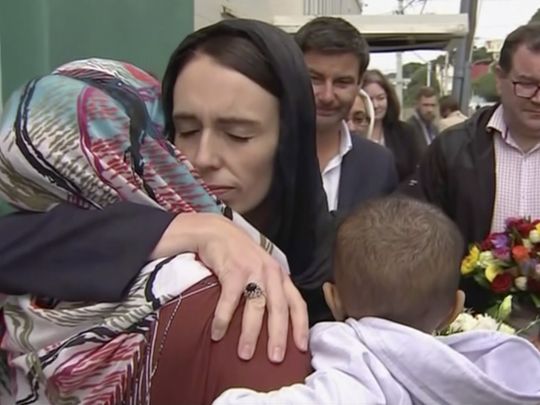
They are the second and third female prime ministers of their countries. They both preside over minority governments. They have both spent most of their lives in politics. Both have a long-term interest in policing and home affairs. And they have both had to lead as their countries confront one of the greatest man-made crises they have ever faced.
That is where the comparisons end. One has become an international heroine and the other is about to leave office in humiliation as the second worst prime minister ever. In New Zealand, Jacinda Ardern has received near-universal acclaim in the way she has handled the tragic massacres in Christchurch. In the UK, Theresa May has managed to leave the country in the most spectacular mess by the way she has mishandled Brexit.
Comparing the way they have each dealt with the respective crises neatly illustrates what is required of a leader when they face a moment of truth. As Niccolò Machiavelli argued in the 16th century, the two main qualities needed above all else are courage and intelligence.
In New Zealand, Jacinda Ardern demonstrated exemplary courage in moving within days to ban semi-automatic weapons in a country where gun owners are nearly as attached to their weapons as they are in Texas. Unlike successive Democratic presidents in the US who would have liked to do so, she has actually done it. May, by contrast, has never had the courage to confront the extremist fringe of her own party on Brexit. If she had done so at the beginning, instead of adopting their red lines, and aimed for a softer Brexit more in line with her own instincts, she, and we, might be in a better position now.
What Machiavelli meant by intelligence was not IQ, but EQ, emotional intelligence. Roy Jenkins unkindly said of Tony Blair that he had a second-class intellect but a first-class temperament, adapting Wendell Willkie’s famous quote about Franklin D Roosevelt. That is the sort of intelligence a leader needs. They must be able to understand what people feel and channel it, as Blair did at the time of Princess Diana’s death. Ardern managed that brilliantly in the way she expressed the grief of the people of New Zealand about the mass-murder in the mosques. And she made it clear the hate that inspired the murderer would be rejected by all New Zealanders. May, by contrast, has repeatedly demonstrated a tin ear throughout the Brexit fiasco. Most recently she used a TV address to the nation to personally attack the very MPs whose votes she was going to seek the following week.
Part of May’s difficulty arises from the way in which she uses words. It is true that politicians must repeat their ideas again and again until they are heartily sick of them if they hope the public will ever hear them. But from “strong and stable” to “Brexit means Brexit”, she has drained the language of meaning. The discipline is admirable but the effect is to stop people listening. Ardern, on the other hand, seemed effortlessly eloquent in the face of horror and has captured the imagination of the world in the way she rejected intolerance on behalf of all of us. She has almost single-handedly managed to avoid the attacks becoming a cause of further tit-for-tat violence around the world.
The contrast is not just about their qualities, however, but also about the political choices they make. Ardern has used the crisis in New Zealand to unite her country in the face of attack. She has not approached the tragedy as leader of the Labour party but as leader of the nation, with the duty to bind it together and heal it. May occasionally makes a nod to the need to unite an unprecedentedly divided United Kingdom, as she did incongruously in her speech attacking MPs last week. But whenever confronted by a political choice she has put the unity of the Conservative party above that of the nation. She has invariably pandered to the European Research Group and its extremist views rather than trying to build a cross-party consensus among moderates in parliament.
And lastly there is the personality of the leader. Ardern, even in the darkest of days, has managed to introduce a sense of optimism about the future despite the horror of the attacks. May seems to be able to render everything depressing. For her, there are no sunny uplands but just another spoonful of castor oil. We are not doing Brexit because it improves the country but just because we must.
Economic and social forces are fundamental in driving history, notably the pent-up anger built on depressed wages and shrinking opportunities that led many to vote for Brexit. But leaders matter too. If the United Kingdom had been led by Ardern we might still have had Brexit, but we would not have ended up with this national humiliation, a divided society and an imperilled economy. If May had been prime minister of New Zealand at her robotic worst, God knows what would have happened after the massacres.
Jonathan Powell was chief of staff to Tony Blair from 1995 to 2007, and is author of The New Machiavelli: How to Wield Power in the Modern World












